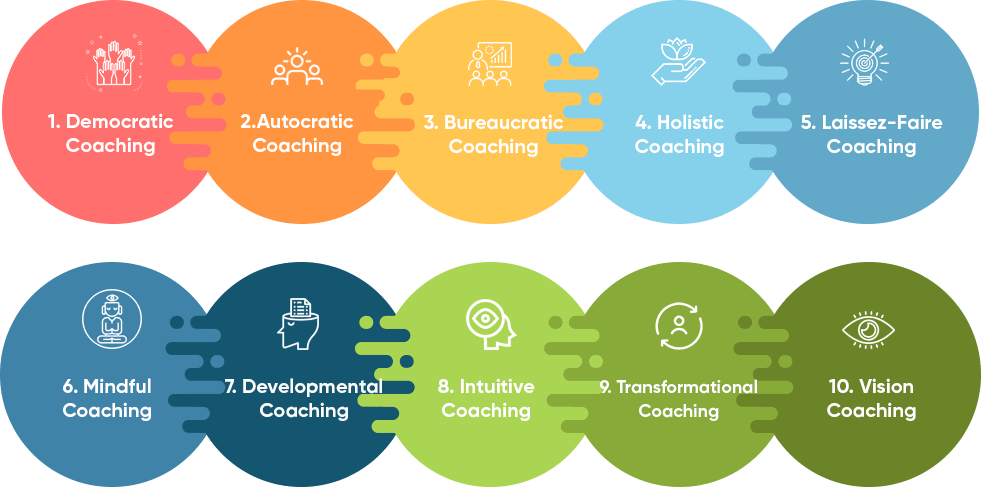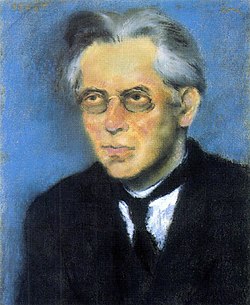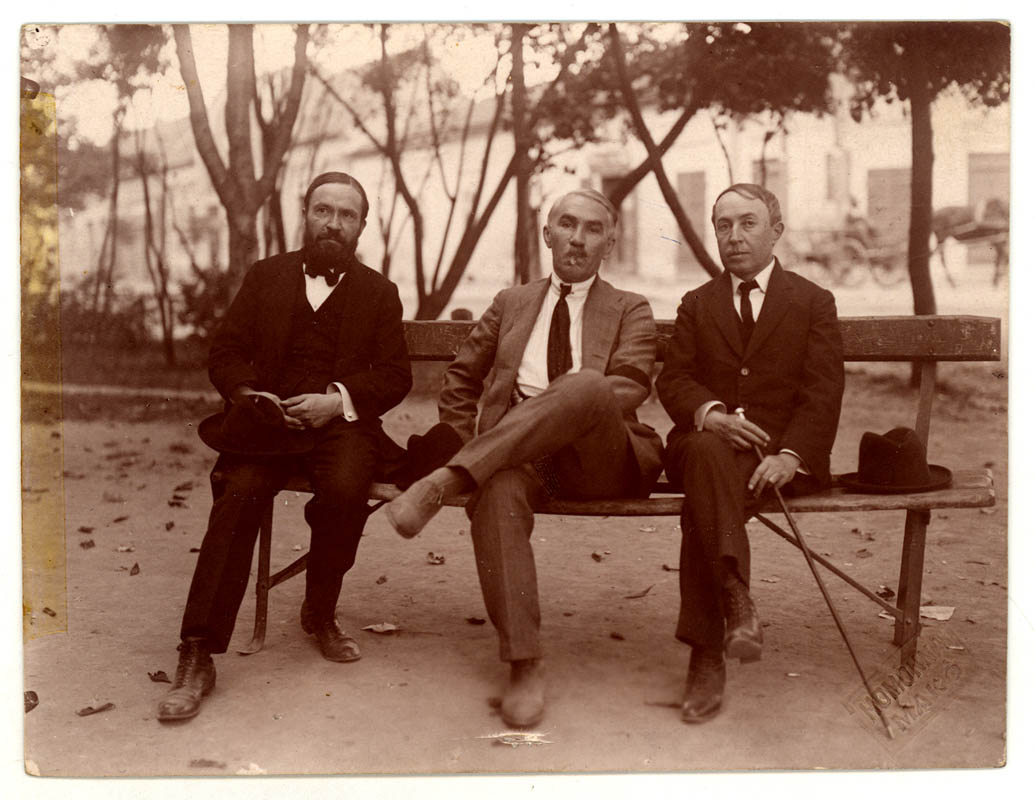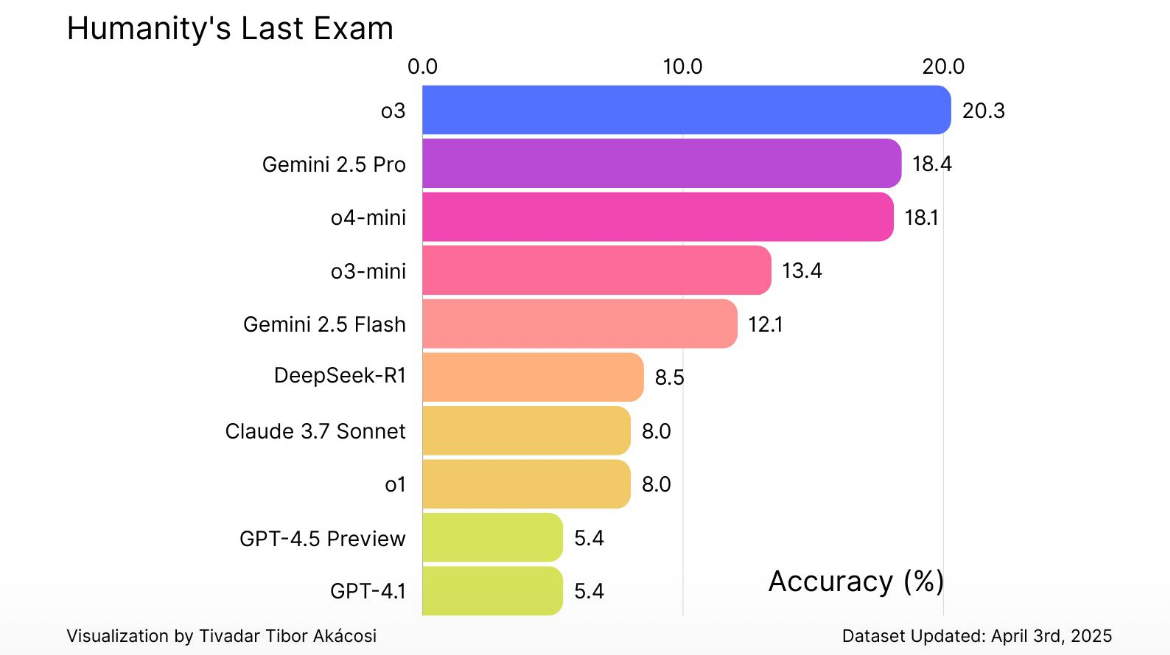
(az illusztráció ebből a postból származik: https://www.evercoach.com/coaching-guides/coaching-styles/ - kapcsolódik ennek a postnak a témájához, de én máshogy osztanám fel területet, pl. az alábbi postban hangsúlyosan megjelenő SF (megoldás főkuszú/központú) megközelítés meg sem jelenik abban a cikkben... ezzel együtt illusztrációnak a témához remek és érdemes belenézni abba a postba is, jól összeszedett, részletes! Nem link, copy/paste!)
Egy régvolt SF (megoldás fókusz) megközelítésű coach ismerős egy nagyon érdekes, inkább elhanyagolt coaching tárgyú szempontra hívta fel a figyelmet a minap a Linkedinen.
Hogy nincs olyan, hogy ‘coaching’, valamilyen megközelítésű, módszerű, sőt filozófiájú coaching-OK vannak. Általános, generatív coaching nincs. Pedig legtöbbször így kerül szóba… mintha lenne… ez nagyon messze vezet, és alapvetően fontos, ha coach-ot választunk. És a coachok lehetnek sokoldalúak, de csak azokra a folyamatokra érdemes, lenne szabad vállalkozniuk, amely(ek)ben felkészültek…
A jó hír: ez a dolog. mint előremutató téma, egy prospektív coach-csal, vagy ügyféllel való első beszélgetésnek egy nagyon hasznos, egyben érdekes, ki nem hagyható témája lehet.
Már mindenki, aki fizetőképes kereslet lehet, legalább hallott “a” coachingról, de talán már ki is próbálta. Ha újra szükségét érzi, a legegyszerűbb, ha a prospektív coach beszélgetést kezdeményez, számára mit jelent a coaching szó. Mit hallott, tapasztalt vele kapcsolatban és azok között mi volt, ami hasznos volt neki, mi volt, ami kevésbé.
A coach pedig elmondhatja, hogy ő miben képzett, mi az, ahogy, ami szerint szokott dolgozni, és máris a kompatibilitás megbeszéléséhez értetek. Érték-megállapításokat egyik részről sem hasznos tenni, egyik módszer sem jobb a másiknál, csak más. Annyit tehet a coach talán, ha nincs egyezés, hogy puhatolózik egy kicsit, hogy a leendő ügyfélben van-e nyitottság, új módszert kipróbálni, ha nem tetszik, mindig ki lehet lépni a folyamatból.
Nem célszerű belemenni egy olyan utcába, hogy a mi módszerünk/megközelítésünk ‘miért jobb’… De fair lehet utalni röviden, hogy mit szerettünk meg benne, és hogyan szokott, tud az ügyfelek hasznára válni…
Amiről ezek eszembe jutottak így, az az ismerős német SF coach hölgy alábbi Linkedin postja:
“Our friend Mariann raised a very interesting question and asked me via LinkedIn: “Kirsten, do you happen to have any blogpost/ writing about the situation where a client is a manager, who has taken some coaching course for managers (not too comprehensive), has sparkling eyes when you approach her as a coach (because she has been trained and "knows" exactly what the coaching is about) and where you have to put quite an effort to create space for different approach? Certainly, one doesn't have to go through that kind of a training to have fixed ideas about coaching, but since I have recently encountered these kinds of cases, I felt like reading some piece about it. :)”
This conundrum is typical for the mess the coaching world is in. Somehow, we have tricked ourselves into thinking that there is one activity called “coaching” and that this can be learned in a 2-day course. No one in their right mind would say the same thing about psychotherapy. Coaching comes in different forms, with various theories of change and distinct foundational axiologies (what is valued), ontologies (what is believed to exist) and epistemologies (how things are known). But associations, the media, and increasingly coaching institutes reduce the diversity of the landscape to one general “coaching” the quality of which can be measured by competences etc.
But let me not get sidetracked by my gripe about the coachosphere. The situation that Mariann describes is a consequence of the conundrum described above, and knowing where the problem comes from does not bring us one step further to a solution. So, what can you do if you meet a client who has a different view of “coaching” than you and is not aware of the limitations of their view. You probably know the fable of the blind men and the elephant: They all feel the elephant and start arguing about whether it is more like a tree (coming from the man feeling the leg) or more like a leaf (coming from the man feeling the ear). If you don’t have a view of the whole elephant, you will continue arguing until the elephants come home.
I’ll try and structure how I would approach Mariann’s situation:
When in doubt, be curious.
I would try and find out what the client appreciated about their coach training. What was it that they perceived as helpful? What difference did that make to them and their lives?
Decide if this is a coaching style I can offer.
Most coaches are flexible enough to accommodate different methodologies. For me, there are limits: I would have a hard time coaching someone who would like me to tell them what to do all the time. Also, I would not want to dive into where problems came from and analyses or classifications of personality types. Another consideration is whether I am educated in the style of coaching that the client wants. In my view, it would not be ethical to attempt to coach in a way that I have not been trained.
Be transparent with the client.
Of course, I would not enter a “yes, but” game with the client around who is right about what “coaching” is. As stated above, “coaching” is more diverse than a herd of elephants. I would describe what my understanding of coaching is and would try and invite the client to test it. In my experience, people who have “sparkling eyes” when they hear the word “coach” are often interested in gaining more knowledge. It’s like inviting the blind man from the leg of the elephant to the trunk to get a fuller picture. This invitation can have very interesting effects on both parties: The client can reflect on what kind of coaching is right for them and the coach can get some valuable feedback on what works for this client. Since the methodology and its fit for the client has been surfaced in the discussion, it may be easier to evaluate fit and to tailor the coaching approach to the client (within the limits of the coach’s capabilities, of course).
Say no.
If the client would really like to be coached in a way that you cannot or will not offer, don’t coach the client. There are probably other coaches that can be of more help.
I think what does help is if we do not assume that there is any “right” way of coaching and stay aware of the diversity of coaching approaches. If we want to “teach” the client what coaching “really” is, we will insist, and the client will resist. If we accept the client’s perception (even if we disagree) and invite the client to try something else or to expand their horizon and accept the client’s judgement on how helpful our coaching is to them, we have a chance to build a good relationship, and both learn from the experience.
If you would like to “ask us anything” drop us a message via email (info@solutionsacademy.com) or LinkedIn. Or come to our free meetup and exchange sessions to discuss conundrums, learn about our courses and hang out with cool and generous colleagues.”
Kirsten Dierolf postja, adott esetben, ha szimpatikus, amit ír, a mail-en lehet felvenni vele a kapcsolatot.
Én nem rendelek…:-)))





